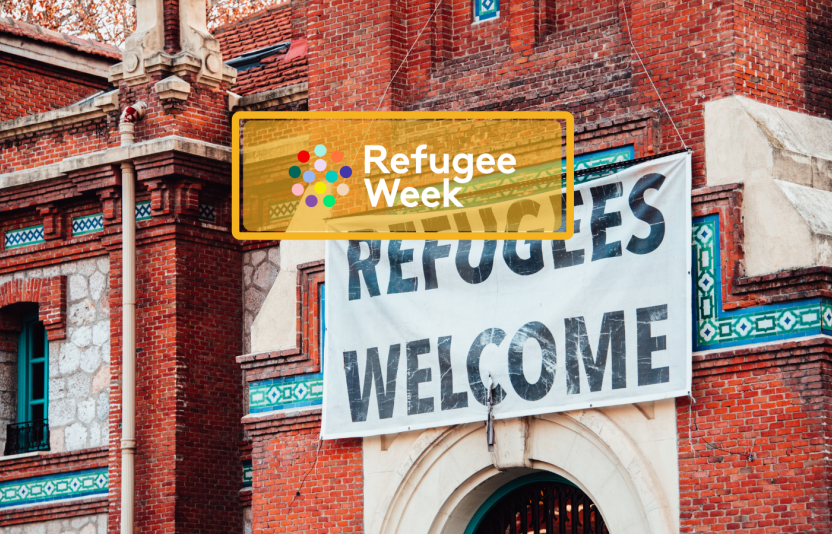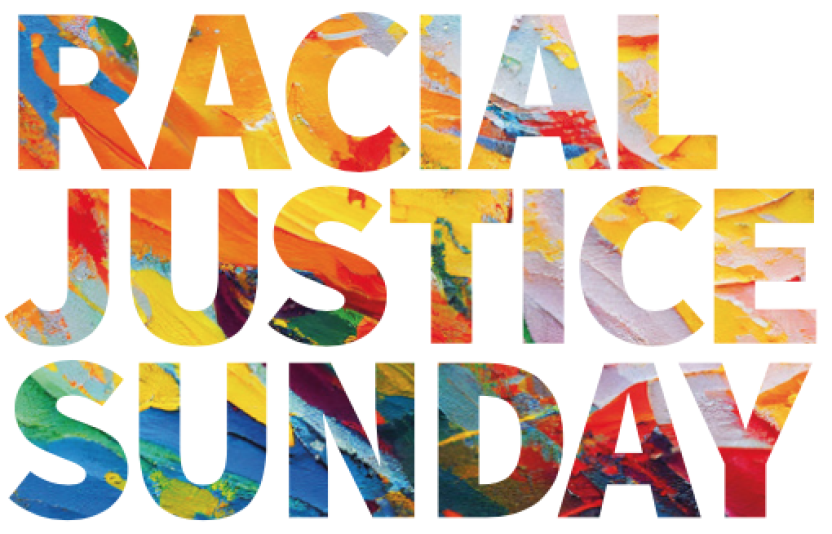Reflections on leaving Moscow – Canon Revd Malcolm Rogers
On Wednesday 28 June, Alison, my wife, and myself walked out of the border control at Narva, Estonia, and left Russia. It was an emotional moment. For the last six years we have lived in Moscow where I have had the privilege to serve as the Anglican chaplain of St Andrew’s. It has not been dull.
There was the World Cup when we saw Russia as Russia could be: open to the world. But we were also in Moscow during the fall out from the Salisbury poisonings, COVID and the invasion of Ukraine. We thought on 24 June that we were going to add a military coup to that list. It has been like living in a Russian fairy tale: at times unbelievably surreal, a bit wild, exciting, occasionally scary, always unpredictable.
We met with incredible kindness from ordinary people. When we took my father round Moscow in a wheelchair (and Moscow is not the most wheelchair friendly city) whenever we came to steps, several people would gather, unasked, to help carry the chair up or down. I was embarrassed by the number of times people would stand up to give me, a 60-year-old white haired man, a seat on the Metro. Shop keepers regularly gave us discounts when we were not aware that there were discounts. And even after the invasion of Ukraine, we continued to meet with kindness.
I have also not known a more obviously spiritually fruitful time than the six years we spent in Moscow. In Russia people still do God and church in a way that I have not seen in the UK. Every Sunday we had new people come through the door, many of whom appeared to be genuinely seeking God. Of course, people came because we were a bit exotic, and because of the English. Several came because they said that it was easier for them to understand the service in English than in Church Slavonic. Others came because they were unhappy with the Orthodox, although I pointed out that in the UK people go to Orthodox churches because they are unhappy with the Church of England. But we offered something that looked like ‘Church’ and tried to offer a welcoming environment for all. We had several adult baptisms and 45 confirmations, mainly of young adults in their 20s and 30s, and a further 10 were waiting for confirmation when we left.
At times, in the earlier days of the war, people would open their hearts to us and tell us how broken and crushed they felt about what had happened. There was the person who messaged, “We are in shock. Not knowing what to expect and where to run. We pray and pray and feel very bad. We are safe but my soul is truly ruined. Just no words, just only cry. What has he done to our nation and our kids? Put us into fire.” Overnight the dreams and hopes of many of our young bright English-speaking Russians, who looked to the West and saw a future in partnership with the West, were crushed. It was a bit like a Russian Brexit, only 100 times worse and far more brutal. It was not only the foreigners who left. Many Russian young people in our congregation left the country, especially after mobilisation began in September 2022.
But of course, many people do support the so-called Special Military Operations, especially those who are older and only have access to government sources of information. Families are divided, especially between younger and older. Family members in Ukraine do not speak to family members in Russia, and vice versa. Couples are divided. But as the SMO have continued, fewer speak to us about their feelings. If you say the wrong thing to the wrong person, you can be accused of the very common offence of ‘discrediting the Russian army’. One friend received the fine of the equivalent of a month’s salary for carrying a bag that said, ‘No war’. Any further offence will mean that she is sent to prison.
There is only one public narrative about the war in Russia, the official version: This is a defensive operation. The enemy is not really Ukraine, but NATO and a West that is Russophobic, that wishes to impose liberal individualism and that wants to break up Russia and destroy Orthodoxy and the Russian way of life. One older Russian lady leaving church one Sunday, said to me, ‘It is terrible’, and when I agreed, added ‘It is all the Americans’ fault’! ’ People were delighted to meet us because they said that it meant that not everyone in the West hated them. That is one of the reasons why I argued that the UK sanctioning the Patriarch was an own goal. It certainly was not a deterrent: to be sanctioned in Russia is to wear a badge of honour. It was a playing to the gallery in the West, and in Russia it was not seen as a sanctioning of the Patriarch, but as a sanctioning of the Orthodox Church. It simply played into the propaganda machine that the West is against the Russian way of life.
Personally, there have been the difficult moments. If you are paranoid, then Russia is the country of your dreams. On one of our more memorable early Sunday morning BCP services, we had - among the very small congregation - MI5, FBI and their FSB minders. We did not think we were ever followed, but in our final week we went to a café for a farewell breakfast with our neighbours; when we came to pay, we were told that the bill had been paid for by the man (who I had not noticed) sitting on the next table to us. Someone in the know told us that it was a classic FSB ‘signing off’ routine. The non-paranoid interpretation is that it was a stranger being very kind! We did have to assume that everything we said, wrote or did was potentially listenable by algorithms, and we knew that people came to the congregation to report back to the authorities. But we had nothing to hide and our only defence was complete openness.
There was also a protest of about 30 people outside St Andrew’s last Remembrance Sunday, waving banners and chanting slogans such as ‘Defeat to Anglo-Saxon vampires’. The best was, ‘Freedom to Scotland’! It was very ordered and very illegal, but nobody was going to stop them. I went over to speak with them. They asked me why the NATO ambassadors were gathering to celebrate the victory of England over Russia in the First World War. I really had to check that I had understood correctly that that was what they were saying, and I have no idea where it was coming from.
But despite everything - the paralysing bureaucracy, the times of fear and uncertainty, the difficulties of getting visas (for the last year we have only been able to get 3 month visas which need to be renewed in the UK) and an ever tightening of the political screw - I am immensely grateful for the privilege that we have had of living in Moscow among the Russian people, of being alongside members of the expat community, and of sharing in the wonderful community that is St Andrew’s. We have left not because of the situation, although that has not helped, but for family reasons. We are going to miss the place and the people dreadfully.
On the evening before we left, I was speaking with one of our more hawkish diplomats. We have had several conversations about God. He would not call himself a Christian. I was saying how powerless St Andrew’s was, and how powerless I felt vis a vis the war. We have no influence, no contacts, and we are dependent on others. We cannot do anything to change the situation. And he challenged me: ‘But you can pray, and you can speak for peace’.
I know that speaking for peace in the current climate is not popular, either in Russia or the West. In Russia it can get you put in prison. In the West it can lead to social disapproval. For both sides, there is a clear right and wrong in this war. For Russians, there is the right to defend yourself. For us, whatever your grievance with your neighbour, you do not invade them without legitimate international sanction (as Western powers we also need to remember that). Ukraine is a sovereign nation that has a right to defend herself. Awful atrocities have been committed, and people need to be held responsible. And how can we give ground to naked aggression, backed up by the threat to use nuclear weapons, without opening the door to future aggression of the powerful? It is not surprising that there is no movement for peace.
But I will speak for peace, because we have heard first hand of the destruction that the war is causing in Ukraine, and I have seen the devastation that it has caused countless people in Russia. I am not prepared to settle for a situation in which thousands of people, Ukrainians and Russians, are still going to die; in which millions of people are forced to live as refugees and in which further millions may starve because grain is not going to reach them. The fighting has to stop. People have to sit down and talk.
As churches we do have a role to play. Firstly, we are more intricately bound up in this conflict than we might wish to be. Religion is a significant factor in this war. We need to work with the world ecumenical bodies somehow bringing the different parties together, showing that what we have in common in our Lord Jesus Christ is greater than anything that separates us.
Secondly, as chaplancies we can pray. As Christians we follow a crucified Lord Jesus Christ. He chose, in love, to die for his enemies so that we might be reconciled to God. As he hangs on the cross, he identifies with the victims, and he takes onto himself the sins of the perpetrators (many of whom are victims themselves), on both sides of the conflict. But we also believe in the resurrection, that Jesus rose from the dead, that there is no death-situation that God cannot transform, and that Jesus is Lord of all. And as Christians we have the freedom to look for the compromise because we know the end of the story, and we can play the long game. An apparent crucifixion, or apparent surrender or defeat today will look very different in 40 years’ time, and it will look even more different on the day that we pray for, when Christ will return, and God will bring to light all things, and establish his kingdom of right-ness, justice and peace. It is in that hope that we can speak for and work and pray for peace.


